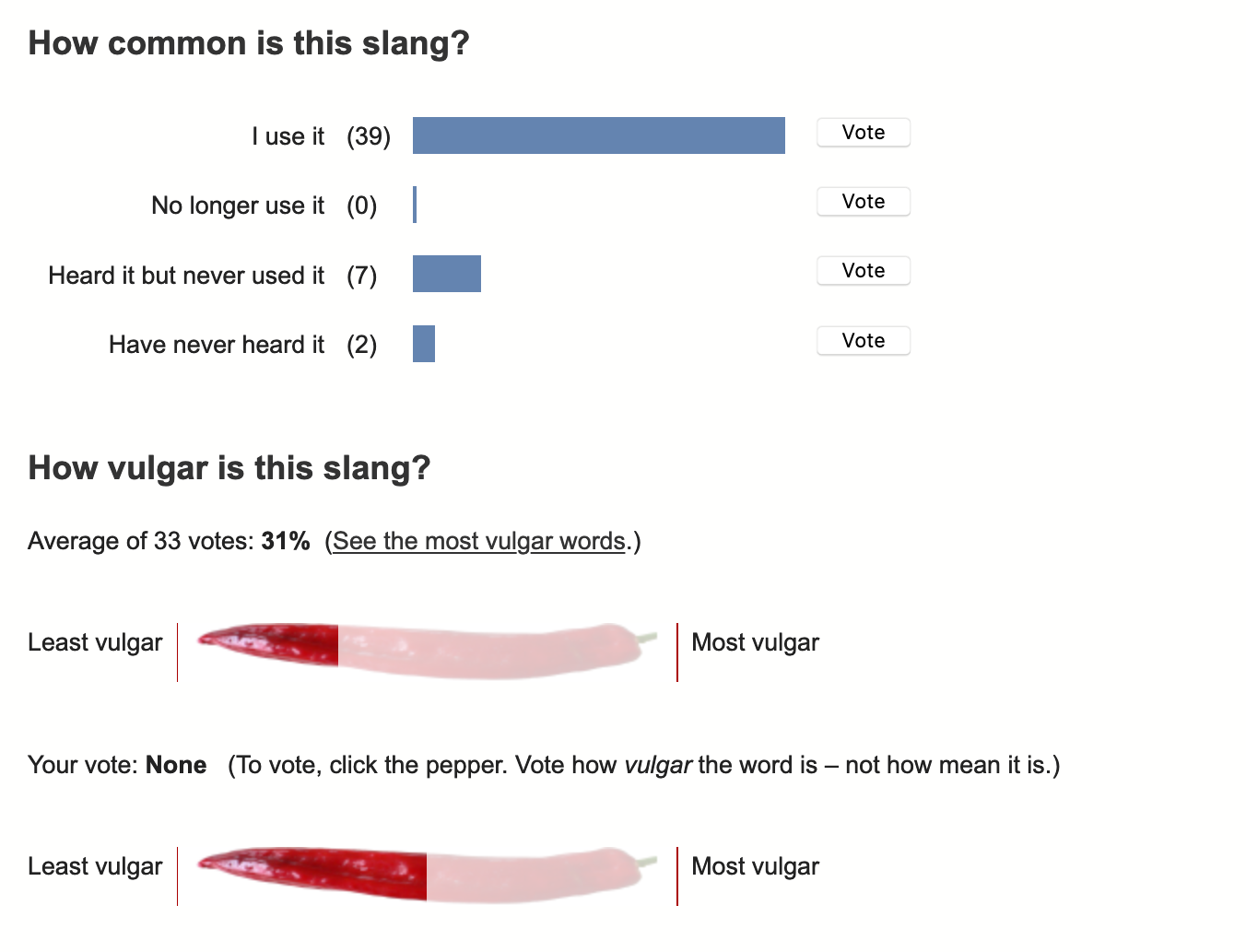How Can I Express How I Feel More Precisely in English?
How many times have you wished you could express yourself more precisely in English?
Let’s say, you bump into your favorite actor, would “happy” accurately describe your feelings? An occasion like this one calls for stronger words. That’s when words like ‘ecstatic’, ‘overjoyed’ or ‘thrilled’ might be better options.
This is why improving your English vocabulary is crucial, so you can have the freedom to express yourself. By building your English vocabulary, you’ll also avoid using the same words in all contexts.
So, how can you develop your English vocabulary and express yourself more accurately? This is our topic for today! We’ll cover some techniques to help you express yourself more precisely in English:
Expand your vocabulary
Feel the music.
Get your popcorn ready!
Practice using intensifiers.
Learn how to swear in English (Warning: offensive language)
Associate words with emotions and your personal life
Translate your feelings into words
BONUS: Expression ideas
English is full of powerful expressions to choose from, so why stick to the same ones over and over? Today, we’re going to change that! So, let’s get started.
Teaching English Just Got Easier!
Save hours of time with an organized collection of high quality, easy-prep ESL lesson plans and worksheets right at your fingertips!
How to Express Yourself more Precisely in English
Expand Your Vocabulary
As an ESL learner, conveying your feelings with accuracy is often a challenge.
That being said, expressing your emotions in a way that matches your needs and feelings is a reachable goal.
Working to expand your vocabulary will significantly improve your fluency and confidence in English, and also your relationship with others.
But you might be wondering: why should I work on building my vocabulary if I could get by with a handful of words?
For starters, you’ll be able to express how you feel with more ease.
Think of the impact that your choice of words will have on the listener. The message you transmit will vary greatly depending on the words you choose.
Telling your friend you’re upset because he called off your plans is not the same as saying you’re furious about it, let alone infuriated.
You need to build your vocabulary to diversify the way you communicate feelings and to make sure you’re expressing your true emotions. It’s a matter of linguistic creativity, flexibility and playfulness.
Most importantly, and from an ESL learner’s perspective, improving your vocabulary will help you attain higher levels of English fluency and confidence. This is the benefit of having choices!
What I’m trying to say is: if you have plenty of vocabulary to choose from, you’ll express yourself more confidently because you’ll get stuck less often in conversations. Think of it this way: by having more choices, you’ll also have the ability to reformulate and elaborate more on your opinion or explanation if you need to.
Now to this end, one technique I propose is to get inspired by how emotions are portrayed in movies and songs.
You’ll only need a comfortable place and a notebook!
Feel the music
“How can music help me express how I feel more precisely in English?”
The unique power of music lies in the emotions it evokes: nostalgia, melancholy, sadness, joy, love–music makes you feel all the feels!
Have you ever thought about why music gives you chills? I think it’s because artists are great communicators of emotions. And as English learners, we can take advantage of that to express our feelings more accurately.
So what songs move you emotionally? Maybe it’s time to come up with a new playlist for your vocabulary’s sake!
Picking words from songs is not only fun, but it’s also helpful because the lyrics generally include common and useful expressions, metaphors, and idioms.
You can even sing along as part of your spoken English practice. Isn’t that a fun way to practice?
Get your popcorn ready
Is it possible to combine watching movies and learn to express how you feel more precisely in English?
Yes, absolutely!
When I was a student, it worked for me to look for content that mirrored my struggles or experiences. That helped me to enrich my vocabulary in a practical and relatable way.
Of course, being in love was the perfect excuse for a romantic movie marathon. But my point is: connecting images, words and personal experiences will help you retain what you’re learning.
You may think you’re too much of a grown-up for this but, “Inside Out”, the animation movie from Pixar, is a great resource for useful vocabulary.
While watching the story of an 11-year old girl who is having a hard time moving out, you’ll find hundreds of possible expressions you can use to communicate your feelings.
If you enjoy reading, I highly recommend movie scripts. What I like about them is that you get authentic and practical English examples and they’re also fun to read.
Regardless of the strategy or the resource you choose, the important thing is to focus on vocabulary that is actually used by English speakers.
If you want to double-check that, try searching phrases in the iWebCorpus. You’ll get results based on the frequency of the words or expressions. And you’ll also see real examples of the words you’re learning.
When it comes to relevant vocabulary, phrasal verbs cannot be overlooked! Precisely, this article features seven phrasal verbs that will help you express yourself in a natural way. If you didn’t know where to start, I recommend starting there.
And don’t forget to take notes!
Practice using intensifiers
In spoken English, it’s common to use modifiers before adjectives to intensify their meaning. Some common modifiers ones are: ‘very’, ‘too’, or ‘more than’, but here are some other useful ones you can practice using to spice up your vocabulary:
Overly: “I think you’re being overly critical.”
Super: “Sorry, I’m super tired.”
Beyond: “She’s beyond excited to see her son.”
Absolutely: “The trip was absolutely amazing.”
Utterly: “He looked utterly miserable.”
Some adjectives can also be used to emphasize the meaning of nouns:
Absolute: “The show was an absolute disaster.”
Real: “The house was a real mess.”
You’ll see examples of these word combinations often, especially in spoken English. Try picking two or more and incorporate them into your vocabulary. Practice always pays off!
Learn How to Swear in English (Warning: Offensive language)
Warning: If you’re sensitive to offensive language, please skip this section.
Depending on your personality, using swear words can be an effective way to express the intensity of your feelings.
For example, what if you found out your partner was cheating on you? What if you missed your flight because you overslept?
Okay, not everything needs to be so tragic: what if you won a car in your favorite game show?
Sometimes, to express ourselves more precisely in English, we need to let go of politeness. This is where learning how to swear in English can help! That’s right, I’m a teacher and I’m telling you to swear.
Of course, just as you would in your native language, you’ll need to use this language only when it’s appropriate.
Think about it: why do we use swear words? To express our emotions! And that’s exactly what we’re looking for here.
What could be more expressive than saying “holy shit!” when you’re surprised and speechless?
Swear words emphasize the extent of our feelings in ways other words don’t. And to be fluent at English, you’ll need to at least understand their meaning.
If you pay attention, you’ll notice that shows, movies and songs are full of them, mostly when it comes to surprise, anger or sadness. Swear words are an intrinsic part of our daily lives. Neglecting to learn them makes no sense if you want a full understanding of the language.
Now, if you’re not the type of person that swears in your native language, I’m not recommending that you start now. But if you often express yourself by swearing in your native language, then learning how to swear in English will help you express yourself more precisely!
In real life, breaking up might feel like shit if it was you who messed up. Especially if you cheated, which is really fucked up.
If someone is being rude to you, you can say: don't be such a jerk!
You could call a person a scumbag or piece of shit after they’ve done something dishonest or unpleasant, or simply because they’re detestable.
And if something makes you really angry or annoyed, you might as well say you’re pissed off.
As I mentioned earlier, what is key about these emotionally charged words is that they’re context dependent, so make sure you’re using them appropriately: in casual and informal conversations with close friends.
If you don’t want to come across as rude and to avoid misunderstandings, consider looking up these words’ offensiveness rates online. You could do that on the Online Slang Dictionary.
Needless to say, you’re not supposed to swear at work or in academic environments.
Associate Words With Personal Experiences
So far, we have agreed that to express how we feel more precisely in English, we need to improve our vocabulary. So, what are some useful techniques to do that?
As I mentioned before, looking for connections between words and your experiences can boost retention. Indeed, association is a powerful technique.
So, when learning words to describe emotions, connect them to memories or situations from your life.
There’s actually little use in learning never-ending lists of words by heart. Instead, you’re more likely to remember things that you can relate to.
So why not try linking words to actual situations? If you’re learning words to express anger, think about what makes you lose your mind!
You could categorize words based on their intensity and write applicable real-life scenarios as an exercise.
Here’s an example:
| Feeling: Anger | What makes me...? |
| Upset | Missing the bus to work. |
| Mad | Waiting in line. |
| Furious | People who are intolerant. |
| Infuriated | People who are disrespectful. |
Translate Feelings into Words
Experiences often trigger an emotional reaction, and putting those experiences and feelings into words can help you learn how to express your feelings more precisely in English. For example, you could write a paragraph reflecting on how a particular situation made you feel.
Think of what feelings come up when you remember your childhood, the first trip you took with friends, or when you moved out of home to go to college.
You could also save drafts of your writing practice and paraphrase it with more descriptive details and new words every now and then. This will help you track and notice your progress as you incorporate the new vocabulary you’re learning.
For some people, writing might be easier if it’s about someone else. So, if you don’t like writing about your personal life, it might be helpful to start with a short paragraph about an episode from your favorite sitcom or show. It would be like a role-playing exercise on paper.
How would this work? Put yourself in the shoes of a character, and speculate or describe how a particular situation or behavior felt.
I always suggest to my students to keep a journal, and take notes of the words they come across. Here’s a wonderful workflow technique in case you need tips to combine listening and writing techniques.
Bonus: Expression Ideas!
The more accurately you express your feelings, the more fluent you’ll be at English. So, here are some cool expressions to help you express yourself more precisely:
Drive someone up the wall
: annoy; make someone angry
“Your constant yelling is driving me up the wall!”
Taste funny
: taste strange; unusual
“This tea tastes funny.”
Action-packed
: full of exciting events
“The season promises to be action-packed!”
Click
: like each other; get along
“We only met twice but we really clicked.”
Feel left out
: feel excluded
“She feels left out because her friends made plans without her.”
Be swamped
: extremely busy
“I’m totally swamped with work right now.”
Be stumped
: unable to find an answer
“The third question completely stumped me.”
Walk all over someone
: take advantage of someone
“Don't let him walk all over you.”
Doable
: able to be done
“It's going to be difficult but I think it's doable.”
I hope these ideas come in handy the next time you need to express yourself more precisely! Thanks for reading and if you have any questions, please share them in the comments below.
About the Writer
Sol is an English teacher and a self-professed grammar geek. As a writer for In English With Love, her mission is to create content that will help encourage and inspire English learners.

















